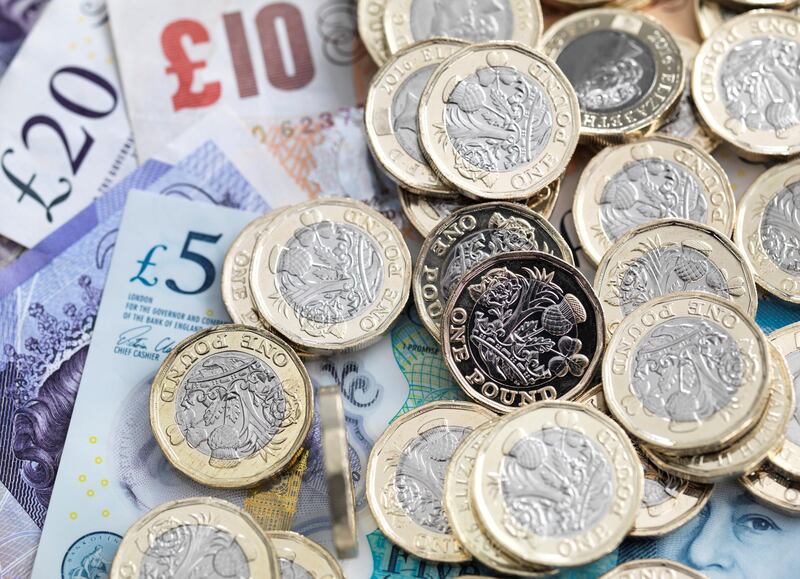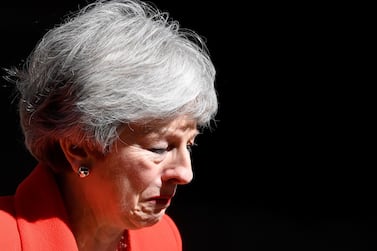If you want to know how Brexit is going, look at the pound.
Sterling is the best single measure of the success or failure of the UK's attempts to redefine its relationship with the European Union and right now, it is in a desperate state.
At the start of 2016, when few expected the UK to vote to leave the EU, one British pound bought you $1.474 or €1.357.
On Wednesday morning it bought just $1.27, a drop of 14 per cent, while it is down 17 per cent against the euro at €1.130 (and 4 per cent in the last month alone).
British expats or UAE residents with UK property or savings, pensions or investments denominated in GBP will have seen the value of those assets plunge relative to other currencies.
Putting it simply, funds totalling £100,000 in January 2016 were worth $147,400; today the same sum is worth just $127,000, almost $20,000 less, purely due to the slide in sterling.
This even applies to investment funds that invested in non-UK stocks, if the underlying fund is denominated in British pounds.
However, other UAE residents might see sterling weakness as an opportunity, and a great time to snap up London property on the cheap.
Joshua Mahoney, senior market analyst at online trading platform IG, which has offices in Dubai, says the pound was recovering until it became clear Prime Minister Theresa May’s deal was doomed, along with her leadership.
With leading Brexiteer Boris Johnson the frontrunner to replace her, sterling is in limbo. “We are now more likely to see an extreme event take place in the form of a no-deal Brexit, second referendum, or general election,” Mr Mahoney says.
No-deal is considered bad for the pound, while a second referendum good, as that might reverse the original result. If a general election happens, then all bets are off.
Sam Instone, director of Dubai-based financial advisory group AES International, says most investors should simply sit tight and wait for the pound to recover. "Keep investing and try not to withdraw too much while the pound is down.”
So far you have only incurred paper losses, the only way you will lose real money is if you need to withdraw your funds and switch them into another currency, Mr Instone adds.
Some investors might want to take advantage of sterling weakness by investing in a GBP-denominated fund, in the hope of benefiting from a future recovery, but Mr Instone urges caution. “Even though people think sterling is going through a period of historic weakness, guessing its future direction is pure speculation. Sterling could get even weaker, and stay weak.”
He recommends selecting a base currency for your portfolio and sticking with it through the inevitable ups and downs of the foreign exchange markets, which should hopefully even out over the years.
Wise investors will spread their risk by building a globally diversified portfolio of low-cost exchange traded funds (ETFs). “This is far more sensible than trying to forecast or time any individual market or asset class,” adds Mr Instone.
Tom Anderson, senior investment manager at Killik & Co, who has clients in the UAE, agrees that trying to ‘play’ currency markets is risky. “If you need money in a particular currency, say, pounds to buy a house in the UK, then as a general rule it’s best just to get on with it because nobody knows what happens next."
Now might be a good time to buy in London as Brexit uncertainty has spooked foreign buyers, with prices falling 3.8 per cent in the year to February, official figures show.
Throw in currency weakness as well and there are bargains to be had. The risk is that no-deal sends prices crashing further.
The biggest problem for the pound is that there is no obvious way out of the Brexit morass.
Mr Anderson says sterling may continue to fall against other currencies, although he sees the odd point of light. "Yields on 10-year British government ‘gilts’ are dropping, so someone is keen to buy UK government bonds.”
Also, when the pound falls, the FTSE 100 rises. That's because companies on the index of blue chip companies generate three quarters of their revenues overseas, which are now worth more when translated back into a weaker sterling.
Mr Anderson says the UK should still form a part of a well-diversified investment portfolio. "Whatever your outlook, I wouldn't recommend stripping UK assets out of your investment portfolios," he adds.
Fawad Razaqzada, technical analyst at foreign exchange specialist Forex.com, says the pound could show resilience. "The worst-case scenario of a no-deal Brexit has been partially priced in. On the other hand, there is still nothing that might trigger a meaningful rally," he says. "The pound may bounce if markets decide it has been oversold, but I think it will remain constrained until we get more clarity."
The Conservatives should have picked the new leader by the summer parliamentary recess, the third week in July. Then all eyes will turn to the new Brexit deadline of 31 October. It looks set to be a long hot summer for the pound, ending in a potential horror story on Halloween.









